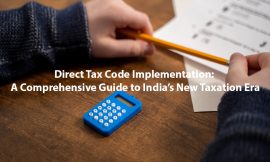Find out how to apply for relief from interest on overdue income tax, understand eligibility, and explore the tax waiver limits set by the Income Tax Department of India.
The Income Tax Department’s recent directive allows officials to waive or reduce interest on unpaid taxes under specific circumstances, providing much-needed financial relief for eligible taxpayers. Ordinarily, if a taxpayer delays in paying the tax demand specified under Section 156, they incur a monthly interest penalty of 1% under Section 220(2). However, under Section 220(2A), waivers are now available for taxpayers facing unavoidable hardships.
Expanded Eligibility and Interest Waiver Limits
For interest relief, the taxpayer must meet three core eligibility criteria:
- Proof of Genuine Financial Hardship: This may involve loss of income due to factors like medical emergencies or market downturns, where paying interest on overdue tax would cause substantial financial strain.
- Unavoidable Delay in Payment: The taxpayer must show that the delay was due to factors outside their control.
- Full Cooperation with Tax Authorities: This involves active participation in assessments, investigations, or recovery proceedings.
The waiver or reduction is subject to specific limits, based on the outstanding interest amount:
- Above Rs 1.5 crore: The authority rests with a Principal Chief Commissioner of Income Tax (PRCCIT).
- Between Rs 50 lakh and Rs 1.5 crore: A Chief Commissioner of Income Tax (CCIT) can approve the waiver.
- Up to Rs 50 lakh: Either a Principal Commissioner (PRCIT) or Commissioner (CIT) can decide on the waiver.
How the Waiver Benefits Taxpayers
The updated waiver provisions reduce bureaucratic bottlenecks, making it simpler for those in need to access timely relief from high interest. This efficient and transparent process is expected to reduce pending cases, improve taxpayer compliance, and support businesses and individuals facing temporary economic difficulties. Industry experts note that these structured waiver limits encourage transparency while ensuring relief is reserved for genuine cases
FAQs on Interest Waiver Under Section 220(2A)
- Who qualifies for an interest waiver under Section 220(2A)? Taxpayers experiencing genuine hardship who have shown cooperation and faced delays beyond their control may qualify.
- What is the application process for an interest waiver? Submit an application to the Income Tax authority with documentation supporting your hardship and delay reasons.
- What type of hardships qualify for the waiver? Situations like economic downturns, medical emergencies, and other unforeseen disruptions that severely affect income qualify as genuine hardships.
- Does the interest waiver apply to principal tax dues? No, the waiver applies only to the interest portion; the primary tax liability remains due.
- How long does it take to process a waiver application? Processing times can vary but are generally prioritized by tax authorities to aid compliant taxpayers promptly.
For assistance navigating tax relief or applying for waivers, consult with Accovet’s tax professionals, who specialize in income tax compliance, interest waivers, and timely tax planning.





